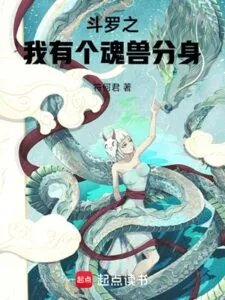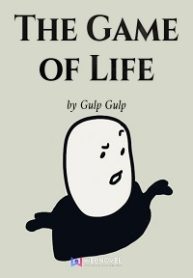Virtuous Sons: A Greco Roman Xianxia - Chapter 1.103 [Aleuas Pyrrhos]
Chapter 1.103 [Aleuas Pyrrhos]
The Hurricane Hierophant, Aleuas Pyrrhos
When the kyrios came for Aleuas, he was dressed in nothing but shadow and rags.
That had been over five hundred years ago. Five hundred and fifty-four years to be exact. In fact, two months from now it would be five hundred and fifty-five.
In the course of his years, time had loosened its grip on Aleuas – as a child, so long ago now that entire civilizations had risen and fallen in the intervening centuries, a year had seemed like a wondrous eternity. As a man grown, a year had seemed like a short time after all. A decade, though, was certainly still a daunting prospect. When Aleuas became properly old by the standards of mortal men, he realized that a decade was hardly any time at all. But a century? That was a mystifying prospect indeed.
These days, it seemed as though he’d miss a century if he blinked. Men and women lived and died, left behind descendants that lived and died, left behind monuments to their great ancestors that eroded and fell to pieces in the earth, and Aleuas drifted through it all. Past a certain point, perhaps since the fall of his own dynasty, time unwound itself from his notice and his care. It ceased to matter what year it was, let alone the month. Holidays came and went. The seasons passed.
So long as he remained on this accursed mountain, there was only one measure of time that mattered. And so it was the only one that Aleuas kept coalescent in his mind.
It had been five hundred and fifty-four years since the Tyrant Riot took his crown from him and dragged him from his throne. In two and a half months the Olympic Flame would be lit in anticipation of the Games, and it would become five hundred and fifty-five.
Five hundred and fifty-four years ago, the Tyrant Riot came to Aleuas’ kingdom in shadows and rags. He didn’t have a strip of leather for his feet, not a sack of cloth to carry his belongings – not that he had any belongings in the first place. When he came to Aleuas, the kyrios was seemingly no kyrios at all.
The Tyrant Riot did not approach the Hurricane Hierophant as a superior. He didn’t even approach him as an equal. When the kyrios came to Aleuas, it was as a pauper without a drachma to his name.
He came to him as a foreigner.
“I am a stranger in a foreign land,” the raven known as Solus spoke, his voice a sea of thousands, each one’s whispering imposed over the rest. “I came here, to this city, on the night of your kyrios’ funeral. On that day my goals had nothing at all to do with you or your contemporaries. I came here to find an old mentor and ask him for his wisdom. Nothing more.”
“And since then?” Aleuas asked, shifting idly on the massive plush lounge that the Tyrant Riot had built for him with his own hands. No matter how much time passed or how many cushions he heaped upon it, it was never any more comfortable.
“Since then, I’ve seen acts of such atrocious cruelty that it makes me sick to remember them.” The raven tilted his head back, and though he was hardly more than half the Hierophant’s size, Aleuas knew the scavenger was looking down his nose at him. “I’ve seen citizens of Olympia curled up on the streets with bleeding ears, screaming in helpless agony while their city’s strongest souls mercilessly beat their drums. I’ve seen members of the Raging Heaven stolen off the streets, stolen out of empty halls, stolen from their beds – each time by their very own brothers and sisters within the cult.”
“Truly foul behavior,” Aleuas said sympathetically, considering the bone-white olive branch balanced between his fingers. It was light. Lighter than air, it seemed. And at the same time, heavy enough for even a Tyrant to notice its weight.
“Foul. Yes.”
The Hurricane Hierophant tucked the olive branch behind his ear.
“So to right the wrongs of we sovereign souls, you added on your own?” he asked the raven pointedly, applying a portion of his ethos to the words. If the scavenger felt the pressure, he didn’t let it show. Aleuas frowned and added more. “You took from all of us a portion of our strength. You took our marrow. You took our crows. You took our Heroes.”
The scavenger’s eerie, faceless veil did not waver. In his hurricane domain, Aleuas could see what lay beyond the viridian curtain as clearly as anything else. But when it came to that midnight veil, he might as well have been looking through the curtain with mortal eyes. Either way, it was nothing but a blackened silhouette.
The raven cawed mockingly at him, in his voice of three thousand shadowed whispers.
“I only took what begged me to be taken.”
There is an old and oft forgotten concept known as xenia. The ritual of friendship between guest and host. The reciprocity of kindness between two strangers.
In the distant, distant past, before even Aleuas’ time, there was a universal expectation of hospitality in the civilized Mediterranean. In those mad and glorious days when the divine walked the earth alongside their lessers, it was understood that any vagrant could be a god or goddess in disguise. Because of this, and because the Father was known to check, every free citizen with sense enough to breathe showed an enduring sympathy for those that darkened their door as guests. You never knew, after all.
For their hospitality, a kind host could find themselves rewarded with blessings and wealth beyond their wildest imagining. For their abuse, a cruel host could find themselves struck down. Suffering, endlessly, for a crime against a higher power that they hadn’t even known they were committing until it was already far too late.
It was an old understanding, dated by its presumptions. Chief among them, of course, was the presumption that a king in his domain could be threatened in any way at all by a maligned pauper. After all, the world that Aleuas had been born into, the world that he had risen through, was not one of mad glory. It was cold and abandoned. As Aleuas had stood at his peak, only a heavenly body could have hoped to match him on his throne. And the only heavenly bodies to be found beneath the curtain of heaven were corpses.
The tyrants of the world had stopped caring for the ritual of friendship long before Aleuas was born. A king in his domain could decide things for himself. They could accept a guest and lavish them with gifts, or they could return them to the earth. The result was the same in the end.
Everyone knew that the Father wasn’t checking anymore. Why suffer the insult, then?
Xenia was before the king’s time.
And so, when a man in shadow and rags came to him with nothing to offer but mad ramblings and a pair of empty, outstretched hands, Aleuas did not regard him as a friend. He regarded the vagrant as he was.
Nothing.
No one.
The Half-Step City of Olympia was a safe haven, a sanctuary that stood apart from the myriad conflicts and crises that so often plagued the free city-states. Since its inception as a venue for the Olympic Games, it had stood shining and unchallenged by any of its sister cities. And in that same way, so had the Raging Heaven Cult stood uncontested by its sister cults of greater mystery.
The Raging Heaven Cult had eight elders – one for every greater mystery cult outside the Half-Step City, sans the Rosy Dawn. Each of these elders was a Tyrant beaten and dragged from their domains. Each of these elders, Aleuas among them, was a sovereign soul that the Tyrant Riot had disanointed in flagrant disregard for their ethos.
The kyrios had taken Aleuas and each of his fellow elders in hand, taken them from their homes and placed them beneath him. And when that was done, he had gone a step further beyond. When that humiliation was not enough to satiate him, he had added another insult to their injuries.
He had given to them a portion of himself.
Hunger was a Tyrant’s curse. A cosmic cruelty handed down by their absent Father in Raging Heaven. Where a Philosopher wondered unto death, and a Hero burned themselves to ash, a Tyrant hungered. A Tyrant starved. And inevitably, a Tyrant died. Hollow. Malnourished.
Empty.
It was in their nature to consume everything they could until that bleak future became a present reality. Even if they could only ever temporarily fill that void, a stay of execution was better than nothing at all. So they ate. They devoured. And they took what they could. Because some things were simply true. And every king knew that while he could afford to be generous in certain material ways, he could never part with the wealth inside his soul.
And in spite of that, the Tyrant Riot gave a portion of himself to each of them his broken elders. A portion of his own marrow, the wealth within his bones. No matter how many centuries passed, Aleuas would never forget the moment that string of blood touched his tongue. He would never forget the way it burned. Like starlight itself.
“You’re worth less now than you were before,” the kyrios had spoken over Aleuas’ broken body, pouring his scarlet marrow into the Hierophant’s open mouth-
Aleuas blinked.
“Come again?”
“You’re worth less now than you were before,” the raven known as Solus repeated. “You’re a shadow of yourself.”
[My shadow, now.]
“I’ve killed men for far lesser insults than that.”
Aleuas’ hurricane domain roiled at his discontent. The windchimes in his quarters clattered and struck one another in a grating cacophony of noise. The viridian curtain snapped and fluttered violently, remaining in one piece only because he willed it to be so. Had it been any of the Howling Wind Cult’s mortal cultivators sitting in this room with him, they would have already been prostrated and in hysterics, if not unconscious.
The raven was unmoved.
“And yet here I am. Alive. Why is that?”
“I’m beginning to wonder the same thing.”
Had they both been standing, the wretched scavenger wouldn’t have been much taller than the Hierophant’s navel. There was nothing tyrannical about his stature. Nothing remarkable at all about him. And for all that Aleuas could have willed himself to be nearly any shape or size he wished here in his hurricane suite, that was because it was his domain. The same was not at all true for the raven.
So why did it feel as though he’d lived this moment once before?
A vagrant enters the City of Squalls and begs its kyrios for the grace of his hospitality.
He is a ragged sight, covered in scrapes and scratches from the storm. He stinks of sour wine and staggers like a drunk through the marble halls of the Hierophant’s estate, because that is what he is. A lush without the sense to know what it is he asks, and who he asks it of.
Yet he climbs one of the serpent lines that dangle from the floating city, and he navigates the shadowed city with such familiarity that it’s as if he built it all himself. He appears on the threshold of the king’s quarters before his elders and his aristois can so much as blink. And in a pitiful whisper of gravel and pain, he asks the Hurricane Hierophant for a place at his table – among his confidants.
Only until the sun rises, the vagrant assures the King of Seers. Just until dawn.
Bemused, the king asks him what he has to offer in return for an honor that any of his citizens would kill for. The vagrant spreads his empty hands, and says that he can only offer the Hierophant a story of the world outside of his domain. Knowledge is the best that he can do.
The king bids him to speak.
“As I was saying, the Tyrant Aleuas before me is a shadow of his former glory. Your contemporaries are the same. Eight elders, eight tyrants imprisoned by the Tyrant Riot. Confined to quarters for centuries.”
The Hierophant sneered. “‘Confined to quarters,’ he says. As if I’m a prisoner in my own domain.”
“Aren’t you?”
“You were at the man’s funeral. You know that I was there.”
As Aleuas knew that the man known as Solus had been there, too. There, in the scarlet and white attire of a cult that had no business in the Half-Step City. He had been there with another, and both of them had stuck their noses into business that wasn’t theirs. Both of them had laid their greedy hands on the property of Aleuas and his rivals.
“One night out and not another one since,” the raven mused. “Why is that?”
“Perhaps you’re too young to understand,” Aleuas said. “Two months is no time at all for those of our standing. Past a certain level of refinement, a man can spend decades behind closed doors before emerging for hunger or thirst.”
“I see,” the raven murmured. “In that case, will you still be behind closed doors when the kyrioi come for the indigo throne?”
“You dare?” The hierophant asked quietly, layering threat over top of ethos.
The shadowed cloak that the raven wore over his left shoulder undulated in the flickering candlelight.
“I care. I’ve come to you in good faith, alone, because I found this city in a state of crisis and I have good reason to want it made whole again. You take offense to being called a shadow, but how could I have meant it as an insult? I’m a shadow, too.”
The raven spread his empty hands. Aleuas stared hard at him through the viridian curtain.
“I am worldly but not altogether wise, so please enlighten me: if you are not a shadow, then why won’t you leave your ivory suite unless your fellow elders have left theirs first?”
The Hierophant was silent.
“I’ve seen this sight before.”
“Is that so?” he rumbled. The curtain quivered.
“Each of you covets the same prize, but only one among eight can have it in the end. You were kyrioi once, unchallenged above all, but that was centuries ago. Captivity has stolen your edge. Time has made a shadow of you. You all refuse to act, because the first to move will be torn apart by the rest. Yet there is a deadline to this uneasy peace, and each of you knows it.
“Seven sovereign souls is competition enough. In two months time, however, the competitors will arrive for their mandatory month of training prior to the Olympic Games. The city of Olympia will be full to bursting with glorious, defiant souls. And a month after that, the kyrioi of the greater mystery cults will come from every corner of the free world, the lords and ladies that took your thrones, and the number of Tyrants in your way will have doubled overnight.”
“The raven has eyes,” Aleuas finally said. “Tell the king, then – where is Olympus Mons?”
“Half a step from here,” came the reply.
The vagrant tells tales of the outside world, and every one of them is a lie.
He is unwell, that much is clear to see. He won’t drink water, only wine, and that is surely a part of it. He rants and raves about past disasters that couldn’t have possibly taken place, natural catastrophes that would have scarred the earth in its entirety if they had truly come to pass. No matter how many of the king’s court challenge him, he insists up and down that every story is true.
And he warns the king. He warns him that the world is changing. He warns him that if he doesn’t change alongside it, he’ll be crushed beneath the wheel.
Just like his serpent-mother.
“You understand that this is a sanctified city,” Aleuas said, waiting for the raven to voice his agreement.
“I do.”
“And knowing that, do you think I’m mad enough to wage war here? Do you think any of my peers are that mad?”
“I do.”
“Who among them?”
“Polyzalus.”
“… and if he does? You propose to stand with us against a member of your own city?”
“Alikos isn’t my city.”
Who are you to lecture me? The monarch demanded. Where is your crown? What is your domain? Who are the people that call you king?
I have no crown, replied the stranger. No name worth knowing either. I am the king of nothing. King of no one at all.
The monarch sneered. Then who are you to speak to me as an equal?
“You said you’d return Scythas to me. When?” the Hurricane Hierophant asked. As he did, he was cognizant of the young woman listening furtively just outside the doorway that the raven had entered through. He’d known she was there from the start, of course. She might have been able to slip by the raven’s notice, but a daughter couldn’t hide from her father.
“Soon.”
“Soon,” he echoed. “Why should I believe you?”
“Because we share a common enemy.”
“Oh?”
“The Eye of the Storm.”
The viridian curtain flung itself apart, and Aleuas Pyrrhos stood up from his lounge. At his full height, he towered over the raven. He took a single step forward and was abruptly in front of him. That midnight veil tilted up to regard him.
“Scythas told me about you, before you stole him away,” Aleuas said intently. “So tell me, Solus, why would a son of Rome want my successor dead? What reason do you have to hate the man that rules in the Hurricane Heights?”
“Because he deserves to die.”
“By whose measure?” the Hierophant demanded, though he did not disagree. “Rome’s?”
“By mine.”
Aleuas sneered at the ragged man in his cloak of shifting shadows. “And who are you?”
The raven considered the question for a long, pensive moment. When he answered, Aleuas heard it echoed through three thousand voices.
And through five hundred and fifty-four years, as well.
“I am a son of raging heaven.”
Every one of his senses told Aleuas that the boy sitting before him in a raven’s cloak was nothing more than what he’d appeared to be the night of the funeral. A junior Philosopher, hardly worth the effort of dismissing from existence. A Tyrant trusted their own instinct above all else, and Aleuas’ instinct told him to put an end to him now, before the boy could think to offer him another insult. His gut told him to strike.
And yet. Even so.
“You must be thirsty.” Aleuas reached into the open air and pulled from it a cup of water. Leaning down, he offered it to the raven.
“No need. I brought my own.” That said, the raven reached into the shadow of his cloak and pulled from it a golden cup of wine, the smell of it all too familiar. If the Tyrant still had a beating heart in his chest, it might have stopped at that moment.
The concept of xenia dictated that a host should treat each and every stranger as a friend, because you could never be sure of what lurked behind anonymity’s gossamer veil.
The Tyrant Aleuas Pyrrhos had ignored that sacred obligation five hundred and fifty-four years ago, and thrown a mad man out on his head after he’d grown tired of his rambling. In return, the shadows of his own kingdom had risen up and overthrew him. Up until that moment, up until the very last instant before madness consumed him and all that he had gained was taken from his hands, Aleuas had been certain that he was dealing with somebody entirely inconsequential.
He had erred.
He wouldn’t err again.














